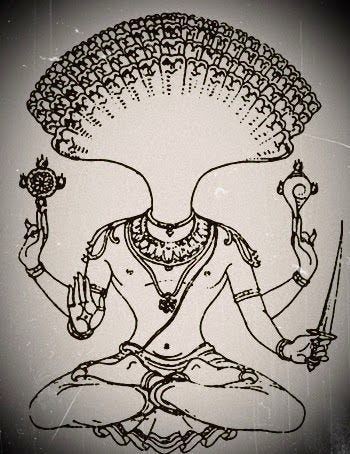In our relentless pursuit of quarterly targets and digital transformation, the last place most executives look for leadership wisdom is a 2,000-year-old philosophical system. Yet yoga—far beyond the physical postures—offers profound insights for modern leadership that might be exactly what our workplaces need.
The Hidden Leadership Framework in Ancient Wisdom
If you've ever taken a yoga class, you've likely heard instructors mention "taking your yoga off the mat." This simple phrase carries transformative potential for leaders navigating today's complex business landscape.
Yoga isn't just about balancing physical strength and flexibility—it's also about cultivating the mind's resilience and adaptability. It's a holistic practice for living with intention, clarity, and purpose. At its foundation are the Yamas and Niyamas, yoga's ethical principles that form the first two of Patanjali's Eight Limbs. These principles offer a framework strikingly relevant to the challenges modern leaders face.

The Five Yamas: A Blueprint for Ethical Leadership
The Yamas guide how we relate to others, essential wisdom for anyone, especially when leading teams:
Ahimsa (Nonviolence) asks leaders to foster environments of compassion and empathy rather than aggression. Consider how different your workplace would feel if feedback came from a place of care rather than criticism.
Satya (Truthfulness) is truthfulness in action—speaking honestly, hearing others' truths, and embracing complexity with compassion. It’s leadership rooted in clarity, humility, and courageous, ethical presence. In an era of "alternative facts," imagine organisations where truth is valued over convenience.
Asteya (Non-stealing) extends beyond physical theft to honouring others' time, energy, and contributions. Leaders practising Asteya give credit freely and respect boundaries.
Brahmacharya (Energy management) reminds leaders that sustainable success requires mindful energy conservation, preventing burnout by modeling balanced work rhythms.
Aparigraha (Non-greed) encourages decisions that serve collective well-being rather than narrow self-interest, aligning with stakeholder capitalism's rising importance.
The Five Niyamas: Personal Practices for Leadership Excellence
While the Yamas focus outward, the Niyamas direct attention inward:
Saucha (Cleanliness) applies to our mental environment. Clear minds make better decisions—a crucial advantage in information-saturated workplaces.
Santosha (Contentment) doesn't mean complacency but finding gratitude amid challenge. Leaders who practice contentment respond rather than react to difficulties.
Tapas (Discipline) is the willingness to endure discomfort for growth. Great leadership often means making difficult choices and staying focused despite distractions.
Svadhyaya (Self-study) reminds us that leadership development begins with self-awareness. How can we lead others if we cannot first understand ourselves?
Ishvara Pranidhana (Surrender) connects individual work to a higher purpose—exactly what employees increasingly seek.
Why Principles Matter in Times of Complexity and Value Decay
Modern organisational theorists like Peter Senge argue that rigid rulebooks and fixed strategies no longer work in our complex, interconnected world. The dynamic nature of today's challenges renders traditional command-and-control approaches obsolete.
Instead, forward-thinking organisations emphasise alignment through shared commitments and purpose, principles. The similarity to yoga's ethical foundations isn't coincidental. Both recognise that sustainable success comes not from external controls but from internalised principles that guide conscientious action.
In times when societal values seem increasingly fractured, these principles offer a way to create coherence without dogma. They're not rigid commandments but flexible guidelines for navigating complexity, respecting individual autonomy while fostering collective harmony.
The Integration: From Ancient Wisdom to Modern Practice
What makes these ancient principles so powerful is their integration. The Yamas and Niyamas work together, creating a holistic approach where ethical relationships with others reinforce personal practices, and vice versa.
Similarly, purpose works best when individual "whys" align with collective meaning, creating resonance rather than fragmentation. In complex systems where rigid control fails, this alignment becomes the invisible architecture supporting adaptability and resilience.
As we navigate increasingly turbulent business landscapes, perhaps the wisdom we need has been waiting for 2,000 years—ancient principles ideally suited for modern complexity, ready to move from the yoga mat to the boardroom.
Thank you for joining me on this journey to bridge ancient wisdom with today’s challenges. If this resonates with you, I’d be grateful for your support in helping make our workplaces more human once again. Namaste, Graziella





